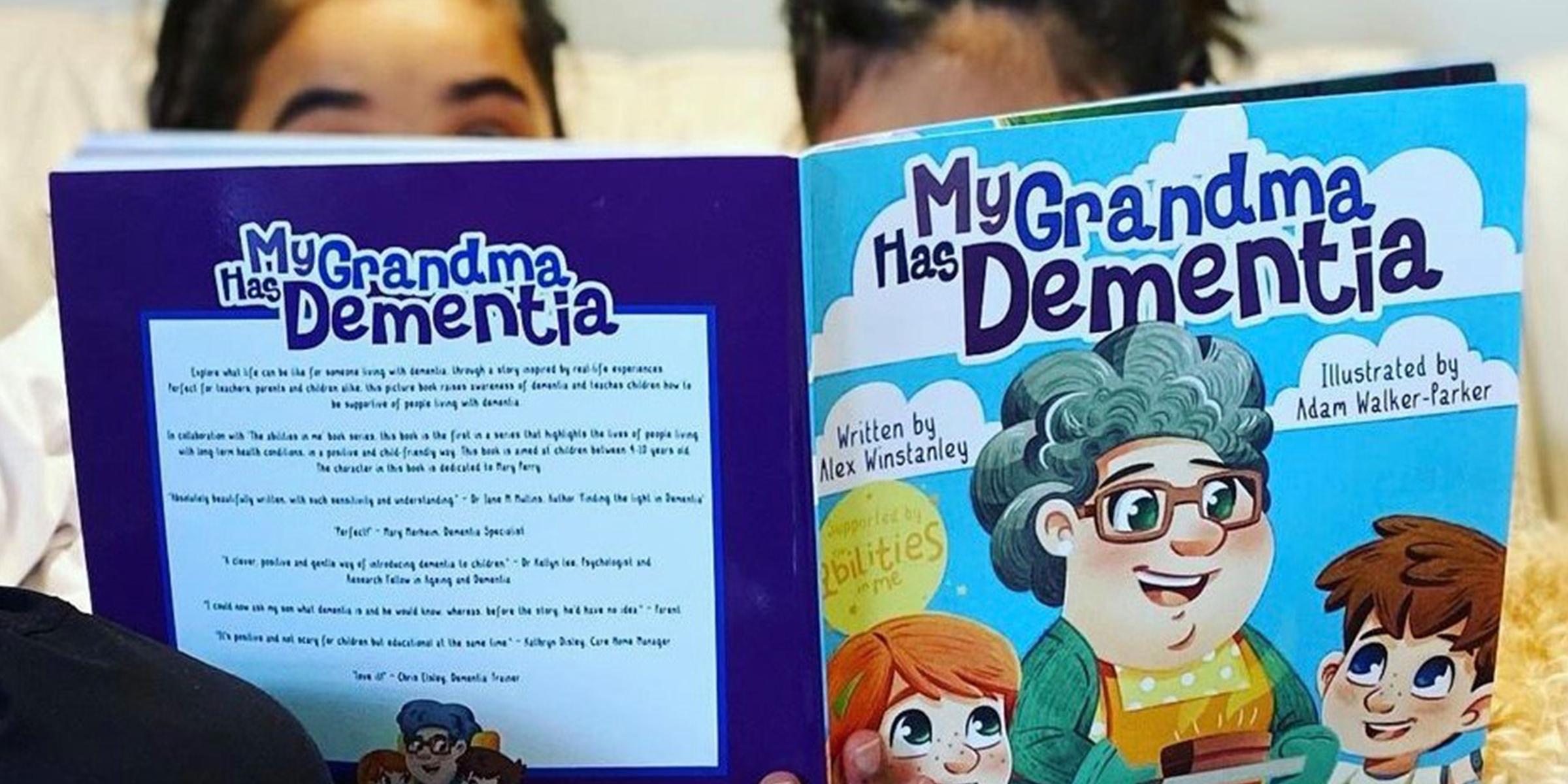
Mary’s legacy: Improving people’s understanding about dementia across generations
A reading project involving schools is tackling isolation for care home residents while raising awareness of dementia, and it was all inspired by one woman’s story.
Isolation has always been a concern for people with dementia in care homes, but especially during the pandemic. Many people have missed out on the sort of contact and interaction that can be a lifeline.
Alex Winstanley is striving to tackle this using a book that he’s written, inspired by the experiences of his grandma Mary, who had mixed dementia.
My Grandma has Dementia, aimed at ages four to 10, explores and explains what life can be like for someone living with the condition and their family. The book also aims to give children an understanding of how they can help to support people with dementia.
‘I had a special bond with my grandma and grew up recognising the changes in her that dementia brought, and seeing my mum provide daily care for her often worried me,’ says Alex.
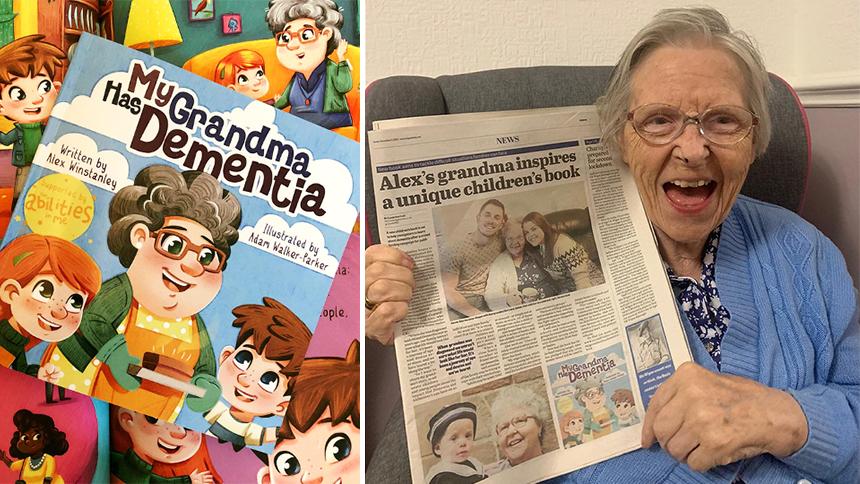
Alex’s grandma Mary, who inspired the book.
‘I want to teach children about dementia and reduce any anxiety they might have about family members living with dementia or moving into a care home.’
There’ll be five more books on other health conditions, including depression and cancer, all inspired by people with lived experience.
‘I want to help children develop a positive, person-centred approach to life,’ says Alex.
Positive relationships
Alex runs Happy Smiles Training, a social enterprise that delivers disability awareness and social inclusion training to schools, community groups and businesses across the north-west of England.
‘When the pandemic hit and we were unable to continue our work face to face, I wanted to find another way of having a positive impact on children and young people, and this book was the answer!’ he says.
With funding from Greater Manchester Centre for Voluntary Organisation, Happy Smiles Training runs an online reading project involving primary schools and care homes across Wigan and Leigh.
Through this, a team of inclusion champions – young adults with disabilities – from Happy Smiles Training read the book with school children, play educational games about dementia, and discuss the impact that dementia can have on a person and their family.
The children are then supported to read the book to care home residents, including those living with dementia. Every stage of the project takes place online via video call.
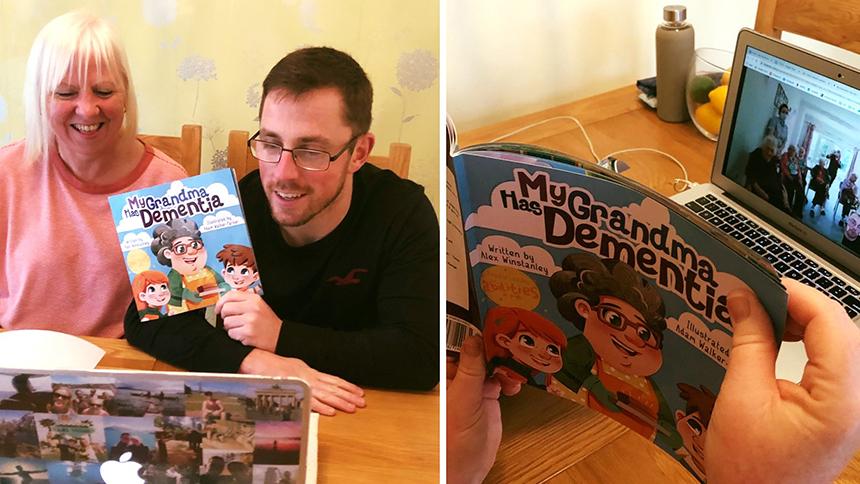
Alex and his mum on an online session.
‘We hope that we are addressing the social isolation of care home residents during the pandemic, as well as supporting the reading and speaking skills of pupils, which may also have been negatively impacted by COVID,’ says Alex.
‘We want to create positive, sustainable relationships between the pupils and residents.’
Social contact
The project is proving popular with all involved, including Sandra Speight, a teacher a St Cuthbert’s Catholic Primary School in Wigan.
‘The class absolutely loved it and it was a really positive experience for them,’ she says. ‘We’d like to purchase some of the books for our school library.’
A pupil at the school added, ‘I really enjoyed learning about dementia because my granddad has dementia and I think knowing more about dementia will help me to help my granddad.’
Kath Purnell, who works at Windsor House care home in Wigan, where Alex’s grandma received excellent care, was full of praise for the book and reading session.
‘It was an easy book for children through to residents to understand dementia,’ she says. ‘It explained it really well and it was made enjoyable for everyone involved.
‘It’s so important for our residents to have as much social contact as possible, and they got a lot out of interacting with a different generation. They loved reading the colourful and engaging book together with the pupils!’
Care home residents with dementia were also pleased. ‘I really liked the illustrations, they were great,’ says one.
Another adds, ‘I think it will really help young ones to understand dementia.’
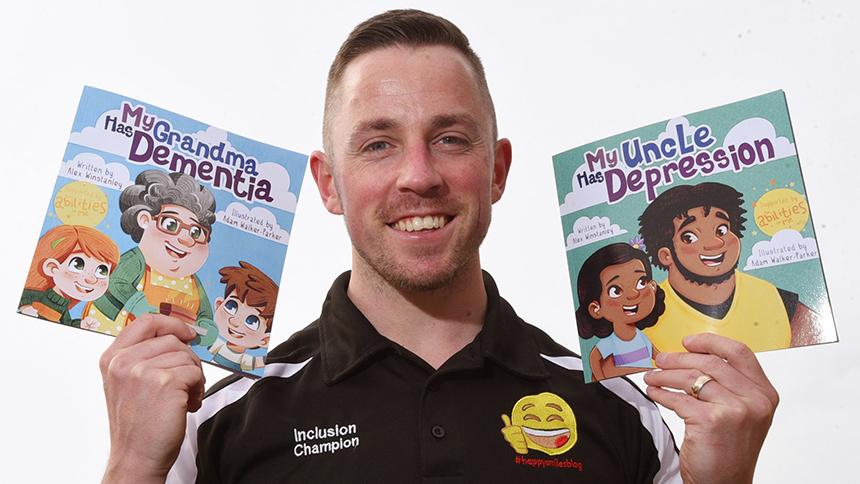
There’ll be five more books on other health conditions, including depression and cancer.
Extremely personal
The project recently began running face-to-face sessions including during Dementia Action Week from 17–23 May. Also held during that week were the Dementia Hero Awards, where Alex won the Dementia Voice award.
Mary died just before Christmas last year, and Alex sees the book and reading project as her legacy in the fight against dementia.
‘I never thought that the book would be read by hundreds of families around the world, and it makes my day when people get in touch to tell me how much they’ve enjoyed it or how much it means to them,’ he says.
‘This work is extremely personal to me and I am very proud that it continues to positively impact the lives of children, young people and the families of people living with dementia.’


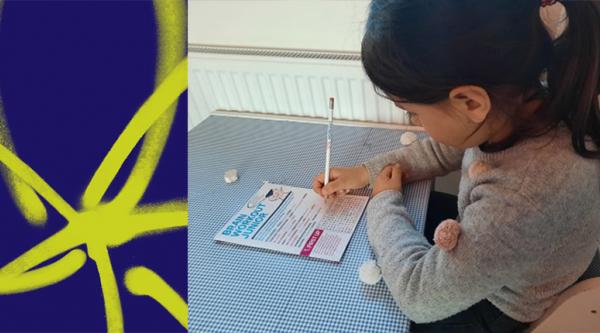
Sheila Rawlings
saysWhere can I purchase the book and how much is it?
Hello Shelia,
Thanks for your comment.
The book is currently on sale through Amazon, priced at £7.99
https://www.amazon.co.uk/My-Grandma-Has-Dementia/dp/B08VCKKBXK/
Hope this helps,
Alzheimer's Society blog team
Elise Histed
saysDo you know, or care, that your webpage refuses to allow people to look at/decide what cookies to accept? I have just been sent around in an infinite loop after clicking your tiny yellow edged box.
Hi Elise,
Thanks for letting us know about this, and sorry you weren't able to manage cookies on our website today.
Our cookie management solution was introduced recently so there may still be some issues to work out. This kind of feedback is really useful for us to hear so that we can fix any bugs and make sure it works for everyone.
I wasn't able to replicate the problem myself, so we'd really appreciate if you could report the problem using the link below while we continue to test the technology:
https://www.alzheimers.org.uk/websiteissues
Thanks again,
Alzheimer's Society digital team